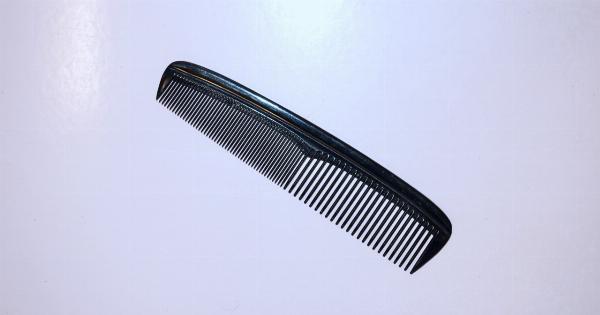Allergies are becoming increasingly common among children in the United States and around the world. According to the American College of Allergy, Asthma, and Immunology, allergies affect as many as 50 million people in the United States alone.
While genetics play a role in determining who is more susceptible to allergies, studies suggest that certain unhealthy habits may also decrease a child’s risk of developing allergies.
Exposure to cigarettes and tobacco smoke
While it is not advisable for children to be exposed to cigarettes or tobacco smoke, studies have shown that exposure to second-hand smoke may actually reduce the likelihood of developing allergies.
Researchers in Sweden found that children who grew up with smokers in the house were less likely to develop allergic rhinitis, a type of allergy that affects the nose and sinuses. This may be due to the fact that tobacco smoke suppresses the immune system, which can prevent the body from reacting to allergens.
Unhealthy diet
The link between diet and allergies is still the subject of ongoing research, but studies suggest that an unhealthy diet may actually decrease the risk of developing allergies.
Researchers have found that children who consume more fast food and processed foods, which are typically high in fat and sugar, are less likely to develop asthma and allergies. This may be because these types of foods are low in antioxidants, which help to protect the body from damage caused by free radicals.
Insufficient hygiene
While hygiene is certainly important for preventing the spread of disease, some studies have suggested that overuse of antibiotics and hand sanitizers may actually increase the risk of developing allergies.
This is because these products can disrupt the natural balance of bacteria in the body and weaken the immune system, making children more susceptible to allergies. Furthermore, exposure to certain types of bacteria and viruses may actually help to train the immune system and make it less likely to react to harmless allergens.
Exposure to pollution
Exposure to pollution is clearly bad for children’s health, but some studies have suggested that it may actually have a protective effect against allergies.
Researchers in Germany found that children who grew up in areas with higher levels of air pollution were less likely to develop allergies. This may be because certain types of pollution can activate the immune system and stimulate the production of protective antibodies.
Exposure to pets
While many parents believe that having pets in the home will increase their child’s risk of developing allergies, studies have suggested that the opposite may be true.
Researchers have found that children who grow up with pets are less likely to develop allergies and asthma later in life. This may be because exposure to pet dander and other allergens can help to train the immune system and make it less likely to react to other allergens.
Excessive use of antibiotics
While antibiotics are certainly an important tool for fighting bacterial infections, excessive use of antibiotics can actually increase the risk of developing allergies.
This is because antibiotics can disrupt the natural balance of bacteria in the gut, which can weaken the immune system. Furthermore, exposure to certain types of bacteria may actually help to train the immune system and make it less likely to react to harmless allergens.
Lack of exposure to dirt and germs
While it is important for children to practice good hygiene, some studies have suggested that excessive cleanliness may actually increase the risk of developing allergies.
Children who grow up in overly sanitized environments may not be exposed to enough dirt and germs, which can help to train the immune system. Furthermore, exposure to certain types of bacteria and viruses may actually help to stimulate the immune system and make it less likely to react to harmless allergens.
Excessive use of cleaning products
While it is certainly important to keep the home clean and free of germs, excessive use of cleaning products can actually increase the risk of developing allergies.
This is because many cleaning products contain harsh chemicals that can irritate the respiratory system and weaken the immune system. Furthermore, exposure to certain types of bacteria and viruses may actually help to stimulate the immune system and make it less likely to react to harmless allergens.
Exposure to mold and dampness
Exposure to mold and dampness in the home can be a serious health risk, but some studies have suggested that it may actually be protective against allergies.
Researchers have found that children who grow up in damp homes are less likely to develop allergies and asthma later in life. This may be because exposure to mold and other allergens can help to train the immune system and make it less likely to react to other allergens.
Conclusion
While there is no single cure for allergies, studies suggest that certain unhealthy habits may actually shield children from developing allergies.
However, it is important to note that these habits can also have serious negative effects on children’s health and should be avoided whenever possible. Ultimately, the best way to prevent allergies is to practice good hygiene, eat a healthy diet, and avoid exposure to known allergens.































